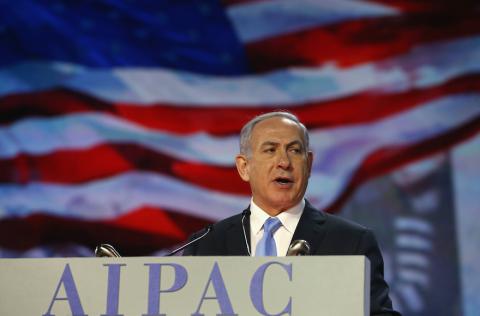Most of the organizations that make up the American Jewish establishment have opposed the nuclear arms control agreement that the Obama administration and the governments of five other nations negotiated with Iran. The American Israel Public Affairs Committee and its affiliates have spent tens of millions of dollars to persuade Congress not to ratify it.
And today, on the eve of the vote, eight of the 10 Jewish members of the Senate, and 12 of the 19 Jewish members of the House, have announced their support for the deal. Just two of the senators and seven of the House members oppose the deal.
If that leads you to conclude that the American Jewish establishment has lost touch with the American Jews it purports to represent, you’ve concluded right. The American Jewish community, like the United States itself, has seen the split dividing its left and right widen to a gulf. Most American Jews, including most of those in Congress, stand on the left side of that chasm. Most of the American Jewish establishment stands, defiantly or uneasily, on the right.
In late August, the Pew Research Center released a highly illuminating guide to the gulf that divides the Jews. Based on interviews with 3,475 Jews across the nation, the report concluded that the 10 percent of U.S. Jews who are Orthodox — 3 percent of them “Modern Orthodox” and 6 percent of them the “Haredi” who dress and lead lives much like the sects that arose in Eastern European shtetls — hold political beliefs increasingly at odds with the 90 percent of their co-religionists who are either affiliated with the Reform or Conservative wings of Judaism, or who aren’t affiliated at all.
Fifty-seven percent of the Orthodox, for instance, either are or lean Republican, while just 18 percent of other Jews claim GOP affinities. Fifty-eight percent of the Orthodox say homosexuality should be discouraged; a scant ?8 percent of other Jews agree. (Like fundamentalists everywhere, many of the Orthodox refuse to distinguish between the Scriptures’ enduring moral principles and their 2,000-year-old superstitions and hatreds.)
These divisions extend to Israel as well: 61 percent of the Orthodox (and 77 percent of the Modern Orthodox) say they are very emotionally attached to Israel, while just 27 percent of other Jews affirm such attachments. And the divisions also have a behavioral dimension: 84 percent of the Orthodox say that all or most of their friends are Jewish, while just 26 percent of the other American Jews say the same.
The geographic clustering of the Orthodox clearly played a role in the decisions of Jewish members of Congress on the Iran deal. Fully 79 percent of the Orthodox, and 89 percent of the Haredi (some of whom bloc-vote based on the guidance of their rebbes) live in the Northeast, chiefly around New York and New Jersey. The other 90 percent of Jews are diffused far more evenly across the nation. Four of the five Jewish House members from the New York area oppose the deal, while just one of the four Jewish House members from Southern California — home to the second-largest concentration of U.S. Jews, but with far fewer Orthodox — oppose it. Three of the four Democratic senators who oppose the deal — two of them Jewish — come from the Northeast.
One of the most striking, but not surprising, results of the Pew Research Center survey is the disenchantment that many, perhaps most, American Jews feel toward Israel. No nation can control another people and occupy its land for 48 years, as the Israelis have the Palestinians, without brutalizing and coarsening themselves, eroding many of the high moral hopes that American Jews once invested in Israel. Some older Jews are still attached to the Israel of 1948, to the scrappy but long-vanished Israel of kibbutz egalitarianism — one reason, perhaps, that three Jewish members from Florida, home to so many Jewish retirees, oppose the Iran deal. Under Prime Minister Benjamin Netanyahu, however, Israel’s values have become less universal and more dangerously tribal — appealing to the more tribal and self-segregating sensibilities of America’s Orthodox, and less and less to the more liberal and cosmopolitan sensibilities of the American Jewish majority. Most American Jews still feel what Catholics term a preferential option for the poor, for immigrants, for minorities. They don’t see such values in today’s Israel — or in American Jewish orthodoxy, either.
With disproportionate financial support from Orthodox and politically conservative Jews, much of the American Jewish establishment has aligned itself with Netanyahu against not just the Iran deal but also President Obama and American liberalism, too. In the process, it has also aligned itself against a clear majority of American Jews.
Harold Meyerson writes a weekly political column that appears on Thursdays and contributes to the PostPartisan blog.


Spread the word